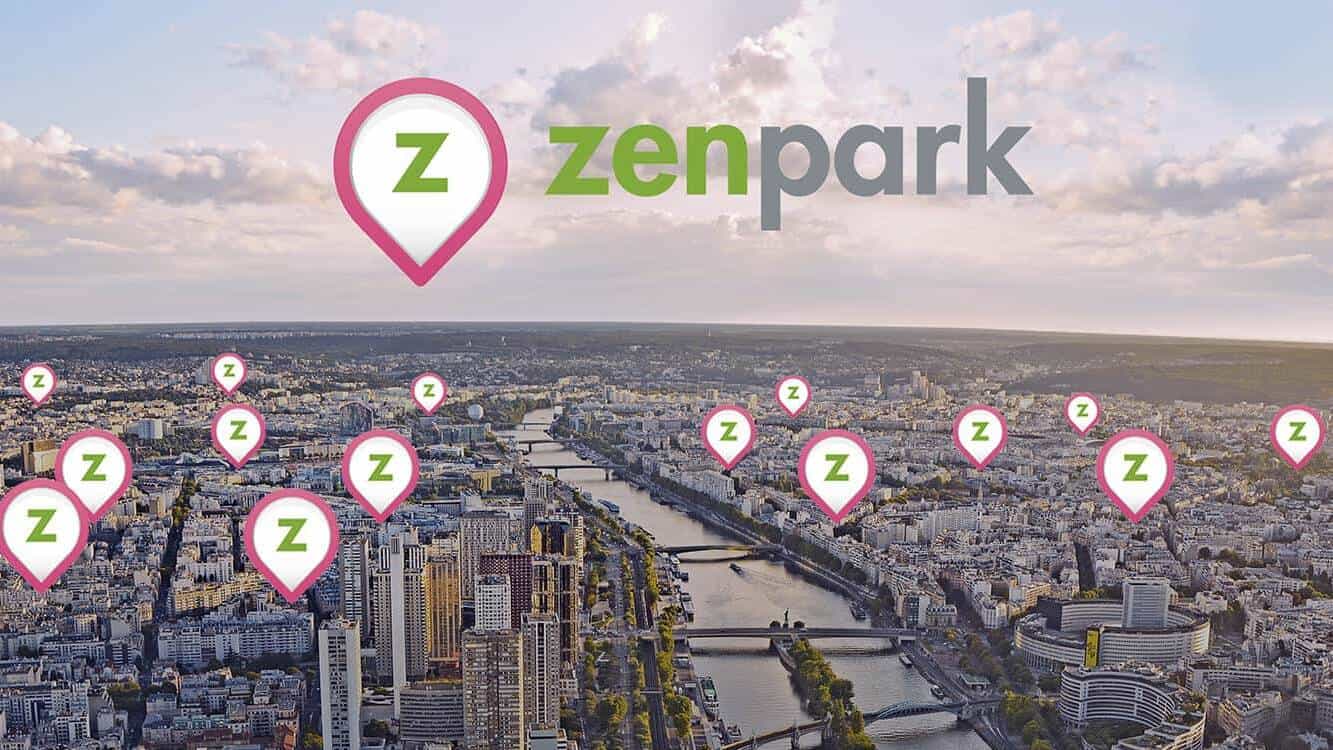How will we find a parking space in the future? We spoke to William Rosenfeld, CEO & co-founder of Zenpark, who just raised EUR 10 million, about parksharing.
Just recently BMW and Daimler announced that they’ll join their forces in carsharing and invest over EUR 1 billion. Isn’t it frustrating that everybody talks about carsharing and nobody about smart park sharing?
That these two German competitors decided to shake hands and work together is fantastic. It is also a good example of their business acumen. They realized that in the future, mobility will be much more interconnected. We have two carmakers in France who should probably think about this development too. But it is not just cars that will be connected. Parking spaces will be managed dynamically and shared too, this is what we do. And there are strong signals that confirm our vision. Softbank recently announced an investment in the US parking startup Parkjockey, valuing the company at more than USD 1 billion.
Let’s talk about how Zenpark came to be. In an interview, you described the frustration you felt when you were circling around for half an hour to find a parking space with a crying baby on the backseat. This is a feeling many car drivers know. But you actually went and founded a company to solve this problem. Why?
Frustration really is a part of driving, but it shouldn’t be. Founding a company needs the right mindset and the right occasion. I previously founded and sold a company, so I had the necessary entrepreneurial spirit. At that time I was the Director of sales & marketing of a startup in the carsharing space, Eileo, that was acquired by Hertz. I couldn’t imagine myself working for a large corporation for a long period, so it was the right occasion too. That’s why I put the idea to paper, the same night. But, you know, the idea is just 1%, the rest is hard work.
How would you describe what Zenpark does?
We are experts in immobility. When a car reaches its destination, it should stop as quickly as possible and not drive around looking for a place. We want to connect the 6 million empty parking spaces in private buildings in western Europe and make them available for this purpose. We help efficiently utilize existing infrastructure. We are doing more with less.
What do you respond when somebody says that we already have too much traffic in cities and shouldn’t invest more in parking spaces?
I completely agree. We are probably the only operator of parking spaces that says: Stop building more parking space! That’s because what we do is we connect spaces that have already been built. Also, Zenpark works together with cities that want to reduce the number of parking spaces. We’re approached by urban planners because we can help them realize smart parksharing for smart cities.
What does that mean?
For now, our clients are mainly individual car drivers that are looking for a parking space. But if you look 10 years into the future, this will change, because carsharing, carpooling, and eventually, robotaxis, will profoundly change mobility. So we’re increasingly talking with real estate developers as customers. For example, when they build a whole new area of a city, they might not get 1000 parking spaces approved by the city, but only 800. So they need an intelligent solution to manage this space, to efficiently combine different usage patterns, and we can offer them exactly that.
How do you do that?
Let’s take the example of Smartseille, an area of Marseille that encompasses 2.7 hectares, 385 apartments, 3000 square meters of retail, 90 hotel rooms and a residence for the elderly. The construction work started end of 2016. We were approached by the urban planner of Marseille and the real estate developer. The challenge was to get the most out of just 600 parking spaces for all of the different stakeholders. Since we have a strong technology stack combining hardware and software, we can manage this space dynamically according to the daily, weekly and seasonal usage patterns. The apartment owners have priority, of course, then come hotel guests, and then comes the public. For French people, it was a big step from ownership of a parking space to a guaranteed right of access. But it works and in the end, much less space is needed while the parking service delivered to users is higher.
This explains why since the launch of Zenpark in 2013 you’ve connected over 1000 car parks and already have a yearly turnover of around EUR 3.5 million. Did you imagine Zenpark would grow so fast?
It is never fast enough! (Laughs). But we’re at the intersection of mobility and real estate, and in the real estate world, things take time, signing contracts takes time.
But you got a nice tailwind with the parking regulation that changed in Paris at the start of 2018, right?
Yes, and this is something all of the major European cities want to do. They want to have central on-street spaces just for short-time parking, so people can go to shops and buy things. The city of Paris raised prices for longer parking time. 6 hours now cost EUR 50, before it was less than half of that. They also raised the price of parking tickets, which can go up to EUR 100 per day now. People have adapted to this, of course, and especially for longer durations, found a cheaper alternative in the parking spaces we offer.
At the moment, Zenpark is growing with 8% per month. With this kind of growth, what is your biggest headache as a CEO?
The most important thing is to stay focused. There are so many interesting opportunities everywhere, but we have to pursue our vision of smart parking rigorously.
How does Zenpark differ from the countless apps that just resell publicly available off-street parking spaces to users?
We think that their model, “booking.com for parking spaces”, has no future. First of all, parking is a local, not a global business. If you travel from Zurich to Paris or London, you don’t need a parking space because you travel by plane or train. So there are no global platform effects to be achieved. Second, parking is a consolidated market, where few players own a large part of inventory and don’t want you to resell it. Third, it is a regulated market where the cities determine the tariffs and you simply can’t offer a better price. So all the three elements that make booking.com successful are not applicable in parking spaces. At Zenpark, on the other hand, we create the inventory we sell and we’re not bound by official tariffs.
Your current financing round is more than EUR 10 million, how difficult is it to raise that much money?
We worked hard and were lucky, I guess. We’re at an interesting intersection of real estate and mobility and have 350 smart city projects in our pipeline that are worth dozens of millions. We wanted to have investors that can contribute more than just money. That’s why we have EDF on board because we think about the challenge of charging electric vehicles and we have RATP, whose know-how in public transport will be useful in transforming underground parking lots into transport hubs.
And your internationalization drive?
We could realize a lot of growth in France alone, but why leave this exciting opportunity in other countries to others? But we’re also aware that we need local partners if we want to enter the German-speaking countries. This is one of the reasons why we’re also raising funds with investiere, to gain access to investors who know the real estate markets there.

Written by
WITH US, YOU CANCO-INVEST IN DEEP TECH STARTUPS

Verve's investor network
With annual investments of EUR 60-70 mio, we belong to the top 10% most active startup investors in Europe. We therefore get you into competitive financing rounds alongside other world-class venture capital funds.
We empower you to build your individual portfolio.
More News
04.04.2020
“We want to be the Tesla of construction”
While working at a concrete manufacturer, Agnes Petit encountered the same problem again and again: coming up against obstacles in the ground which meant that products had to be modified. This would increase costs and take more time to build. So she kept thinking about how to make it more efficient. In this interview, she explains the solution she came up with.
21.10.2019
“We have anonymized data on more than 90’000 cars”
The digital fleet management platform Avrios has grown considerably in the past and is preparing a financing round to fuel further growth. The main competition of Avrios is still Microsoft Excel, which isn’t well suited to the task. Robin explains why he isn’t scared by the advent of robocars and what the funkiest company car is.
21.06.2019
Zenpark (Shared parking): EUR 10m Financing Round
Paris-based Zenpark has raised EUR 10 million in a financing round from investiere, Electricité de France, the RATP group, MAIF Avenir, Demeter Venture and business angels including Frédéric Mazella. investiere contributed EUR 0.7 million to this round.
Startups,Innovation andVenture Capital
Sign up to receive our weekly newsletter and learn about investing in technologies that are changing the world.




